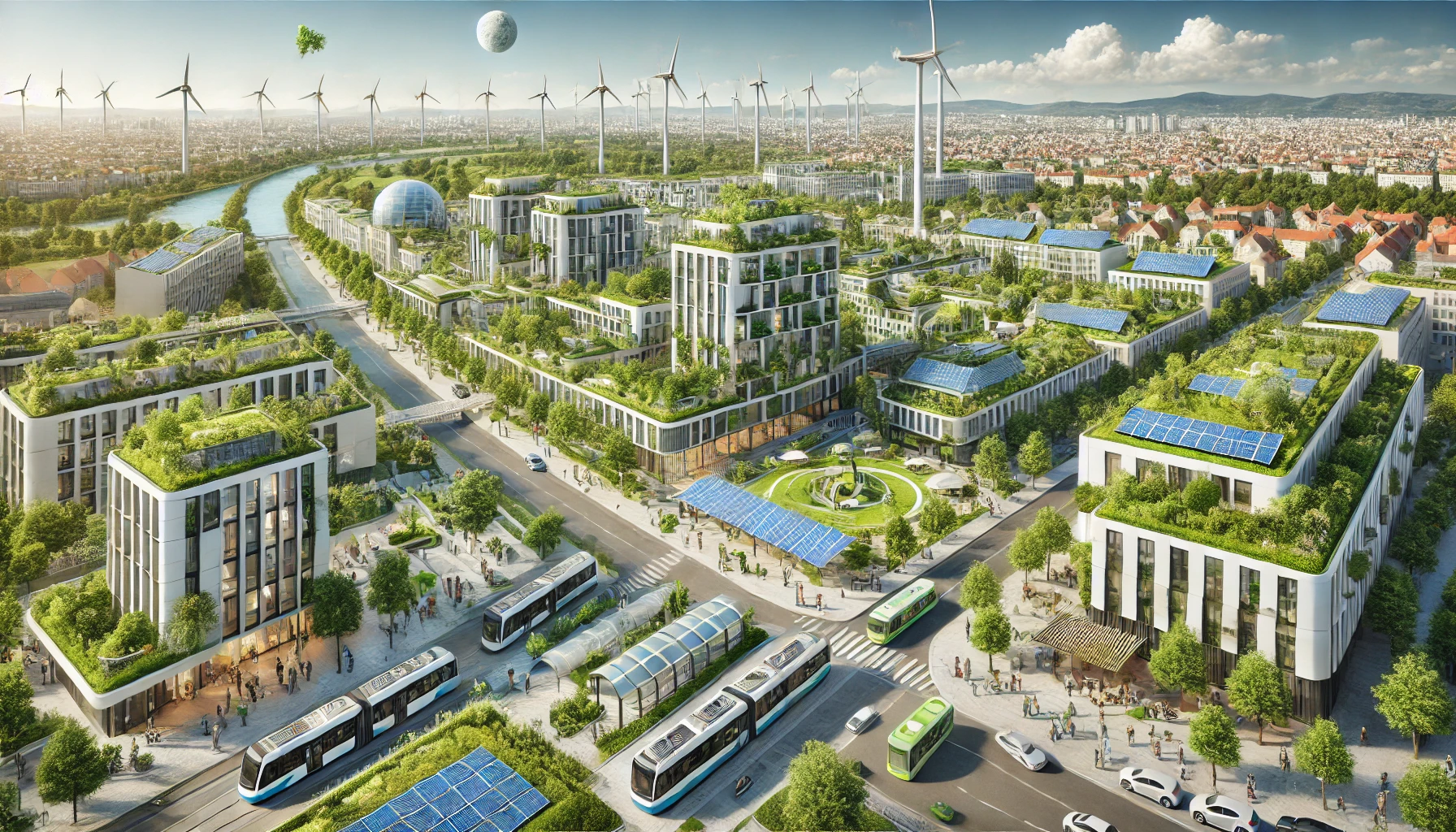How Green Public Procurement is Transforming Bulgaria’s Economy and Governance
A World Bank study reveals that green public procurement (GPP) in Bulgaria, accounting for 10-20% of spending, fosters competition, reduces corruption risks, and channels resources to more productive firms, enhancing both governance and economic efficiency. Despite challenges, GPP proves transformative for sustainability and economic growth.

The Policy Research Working Paper authored by researchers from the World Bank, Central European University, and the Government Transparency Institute, explores the impact of green public procurement (GPP) on governance and economic efficiency. This study, covering 2011 to 2019, investigates Bulgaria’s unexpected progress in GPP, a country that faces governance challenges like high corruption risks and limited competition in public procurement. The findings highlight how integrating sustainability criteria into public spending can improve competition, reduce corruption risks, and enhance economic outcomes, even in challenging environments.
Green Public Procurement’s Growing Role
GPP constituted 10-20% of Bulgaria’s total public procurement spending during the study period, significantly higher than previous estimates. By analyzing over 148,000 contracts, researchers found that green criteria were most often embedded in product descriptions and technical specifications rather than in bid evaluation criteria. This marks a shift in how sustainability is integrated into public procurement, focusing more on what is procured (e.g., renewable energy or electric vehicles) than on how bids are scored. The findings challenge traditional views of GPP as a peripheral policy tool and underscore its growing role as a core component of procurement strategies aimed at sustainability.
Fostering Competition Through Innovation
One of the most significant outcomes of GPP is its ability to foster competition in markets traditionally dominated by entrenched networks. The study found that GPP increased the participation of new firms in public procurement by 3-7 percentage points, particularly those from outside the procuring authority’s locality. This broader participation disrupts monopolistic practices and opens opportunities for diverse market players. Additionally, green contracts were associated with a reduction in single-bid tenders by 0.6-1.5 percentage points, a metric often linked to corruption. By incentivizing market entry and increasing competition, GPP effectively reduces the concentration of procurement markets and encourages transparency.
Reducing Corruption Risks
The study highlights GPP’s role in reducing corruption risks in public procurement. Contracts that incorporated green criteria were less likely to be awarded through non-competitive processes. The likelihood of single-bid contracts, a red flag for corruption, decreased significantly under GPP frameworks. Furthermore, green procurement fosters more open and transparent procurement procedures, challenging the dominance of entrenched players and limiting opportunities for collusion. This alignment of sustainability with integrity offers a compelling argument for scaling GPP as a means to tackle corruption, especially in countries with governance challenges.
Boosting Productivity and Economic Efficiency
Beyond governance improvements, GPP significantly enhances economic outcomes by channeling public resources to more productive firms. The analysis revealed that firms awarded GPP contracts demonstrated 14% higher labor productivity compared to those awarded non-green contracts. This productivity differential rose to 19% in low-corruption-risk GPP contracts. These findings suggest that GPP attracts firms with superior technology and management capabilities, enabling them to meet the stringent environmental requirements of green contracts. This alignment between environmental and economic goals underscores GPP’s potential to support both sustainability and economic growth.
Challenges and Future Implications
Despite its benefits, GPP faces implementation challenges, including high upfront costs, complexity in procurement processes, and limited awareness among procurement professionals. These barriers can hinder its broader adoption, especially in less developed markets. Moreover, GPP often interacts with other policies, such as social and environmental regulations, making it difficult to isolate its specific impacts. Nevertheless, the study’s findings highlight the transformative potential of GPP, particularly when implemented strategically and consistently. By fostering market development and encouraging innovation, GPP can create long-term benefits that extend beyond the immediate procurement process.
A Path Toward Sustainable Development
The study establishes that GPP serves as a tool for achieving environmental goals and strengthens governance and economic efficiency. By encouraging competition, reducing corruption risks, and promoting productivity, GPP demonstrates its value as a comprehensive policy mechanism. The findings suggest that even in governance-challenged environments like Bulgaria, GPP can drive meaningful change. Policymakers are encouraged to invest in sustainable procurement practices, which, over time, can build markets for environmentally friendly products, foster innovation, and amplify economic benefits. The Bulgarian case provides a compelling model for other nations seeking to integrate sustainability into their public procurement systems, proving that green choices in public spending can lead to a less corrupt, more competitive, and economically dynamic future.
- FIRST PUBLISHED IN:
- Devdiscourse
ALSO READ
World Bank and Bangladesh Commit $900M for Climate Resilience and Inclusive Growth
World Bank Pledges $12 Million to Aid Earthquake-Struck Vanuatu
World Bank Provides $3.5M for Uzbekistan’s Solar Power Project in Khorezm Region
World Bank Fast-Tracks US$12 Million to Vanuatu for Earthquake Recovery
World Bank Group Scorecard FY24: A Blueprint for Inclusive Growth and Climate Resilience










